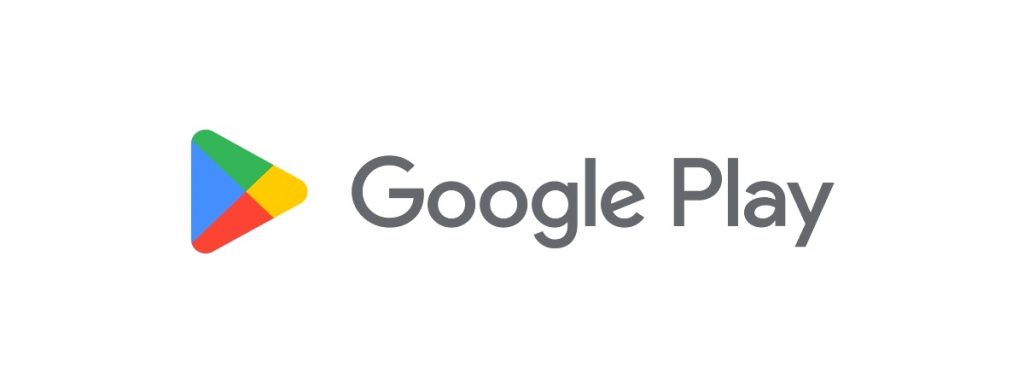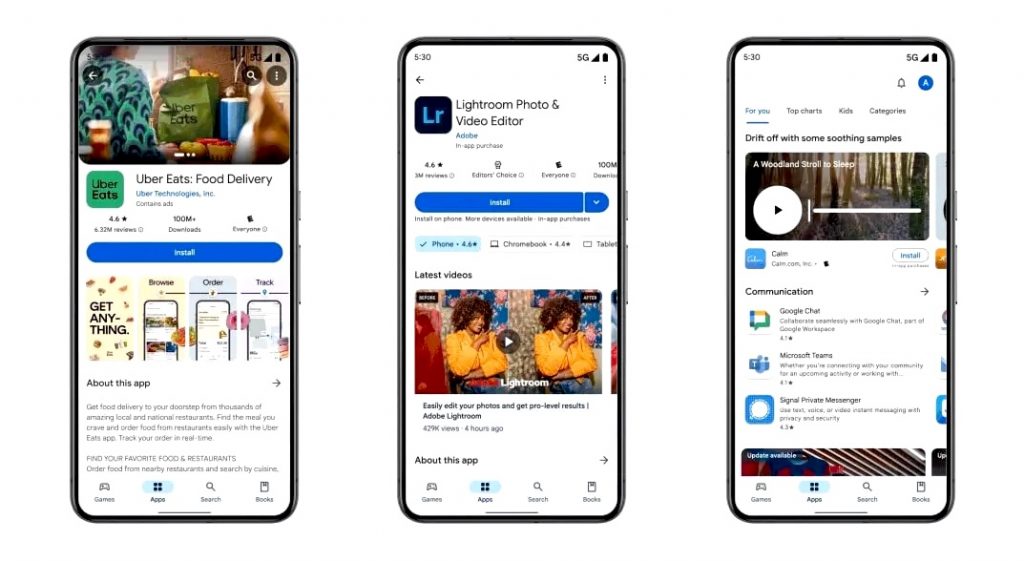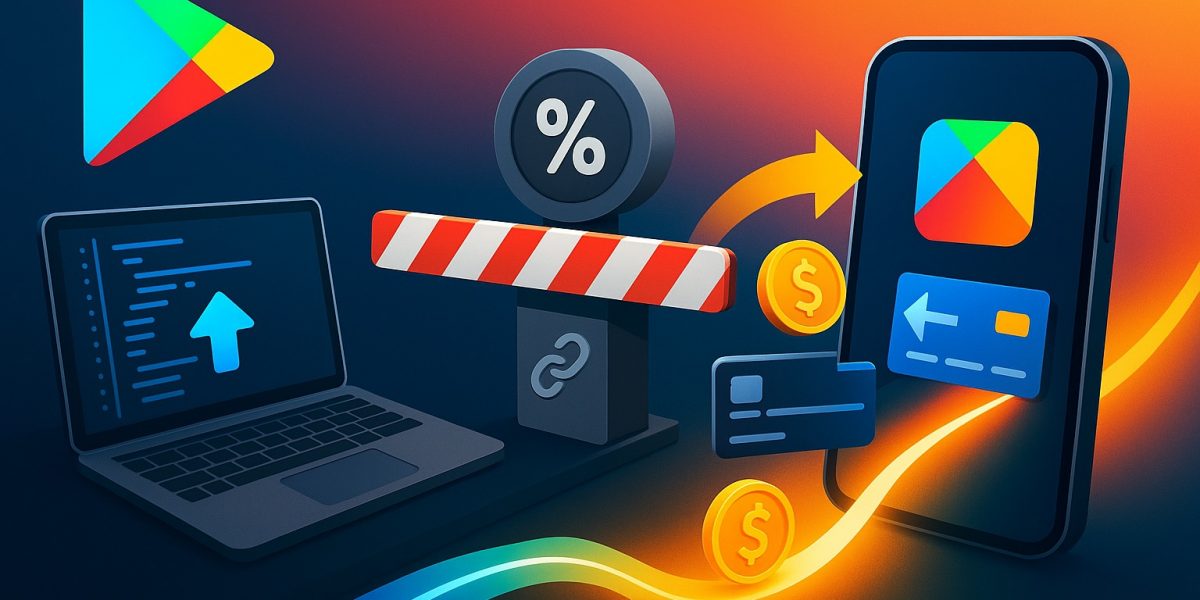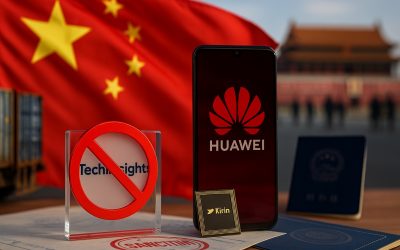Google started implementing court-ordered changes to Play Store operations on October 29, marking the tech giant’s first major concession following its antitrust defeat in the Epic Games lawsuit. US developers can now bypass Google’s payment system and direct users to alternative app stores, potentially ending the company’s lucrative 30% commission that has dominated Android app distribution for over a decade.
The changes, affecting only US users, allow developers to inform customers about better pricing offers outside Google’s ecosystem and include direct links to external payment systems like PayPal or credit card processors. Google confirmed it “will not require the use of Google Play Billing” and cannot “prohibit a developer from informing users about other payment methods besides Google Play Billing.”

Supreme Court Rejects Google’s Final Appeal
Google’s implementation followed the Supreme Court’s rejection of its emergency petition on October 6, clearing the path for sweeping marketplace reforms. The company argued that imposing injunctions would turn the court into a “central planner,” but justices provided no explanation for their denial, as is customary with emergency applications.
The court decision upheld a three-year injunction that remains in effect until November 1, 2027, resulting from Epic Games’ 2023 jury trial victory that established Google maintained an illegal monopoly on Android app distribution. The Ninth Circuit Court of Appeals rejected Google’s appeal in July 2025, leaving the Supreme Court as the company’s final recourse.
This legal journey represents a fundamental challenge to the app store model that Apple and Google have profited from enormously. The 30% commission on in-app purchases and subscriptions generates tens of billions annually across both platforms, making these mandatory payment systems among the most profitable aspects of mobile ecosystems.
Epic Prepares Store Launch as Competition Opens
Epic Games CEO Tim Sweeney declared “complete victory” following the appellate court decision and announced plans to bring the Epic Games Store to Google Play. The gaming industry giant sued after Google removed Fortnite from Play Store in 2020 for attempting to circumvent payment requirements, and Sweeney now notes that developers are “legally entitled to direct US Google Play users to off-app payments without fees.”
The injunction specifically prohibits Google from “providing certain benefits to app distributors, developers, hardware manufacturers, or carriers in exchange for promoting Play Store,” eliminating what Epic called “Project Hug”—a multi-billion dollar program maintaining exclusive relationships with major publishers.
Project Hug represented Google’s defensive strategy against perceived threats from competing app stores and platforms. By offering financial incentives to major developers for maintaining Play Store exclusivity or preferential treatment, Google allegedly reinforced its market dominance. The injunction now prevents these arrangements, theoretically leveling the playing field for alternative distribution channels.
Implementation Details and Developer Impact
The practical implications for developers vary significantly based on their business models and user bases. Large developers with substantial transaction volumes stand to save millions annually by avoiding Google’s 30% commission. Smaller developers gain pricing flexibility and direct customer relationships previously mediated through Google’s systems.
However, bypassing Google Play Billing introduces complexity. Developers must implement their own payment infrastructure, handle security and fraud prevention, manage customer support for payment issues, and ensure compliance with financial regulations. Google’s payment system, despite its cost, provided turnkey solutions for these challenges.
Alternative payment systems charge their own fees, though typically less than 30%. PayPal, Stripe, and other processors charge 2-3% plus fixed per-transaction fees. Developers must calculate whether the cost savings justify the operational complexity of managing multiple payment channels.
Consumer Experience and Security Considerations
From a consumer perspective, the changes introduce both benefits and potential friction. Users gain access to better pricing when developers pass commission savings along. They also get payment method flexibility beyond Google’s system.
However, the changes fragment the payment experience. Users might need to create accounts with multiple payment processors, remember credentials across different apps, and navigate varying refund policies. The unified billing Google provided—while expensive for developers—offered consistency and simplicity for consumers.
Security concerns arise when payment processing moves outside Google’s controlled environment. While established processors like PayPal maintain robust security, the opening could enable less scrupulous developers to implement substandard payment systems or even fraudulent schemes. Google’s screening of payment systems, despite limiting competition, provided quality assurance.

Broader Market Implications
The Google Play Store changes set precedent that could influence app marketplace regulation globally. European Union’s Digital Markets Act already mandates similar openness, and other jurisdictions may follow. Apple faces parallel legal challenges regarding App Store policies, though distinct differences in iOS’s closed ecosystem versus Android’s relatively open platform complicate direct comparisons.
For alternative app stores, Google’s compliance creates genuine opportunity. The Epic Games Store, Samsung Galaxy Store, Amazon Appstore, and emerging competitors can now compete more fairly for developer relationships. Whether developers widely adopt alternative distribution depends on factors beyond just commission rates—including user reach, discovery mechanisms, and platform quality.
Google’s Ongoing Legal Strategy
While Google continues attempting to appeal the case to the Supreme Court and emphasizes these changes reflect temporary compliance “as long as the US District Court’s order remains in effect,” the company acknowledged it will “share more about new program requirements and business model changes to maintain user trust and safety in the ecosystem” in coming weeks.
This language suggests Google plans to implement compliance measures that technically satisfy court orders while potentially limiting their practical impact. The company might introduce friction in alternative payment flows, impose strict security requirements that disadvantage smaller payment processors, or leverage other policy levers to maintain competitive advantages.
The three-year injunction timeline means this experiment in forced competition will run until late 2027. Whether it fundamentally reshapes Android app distribution or proves a temporary disruption before potential reversal depends on how vigorously competitors seize the opening, how developers respond to new options, and whether Google’s ongoing legal challenges ultimately succeed.
For now, US Android developers have unprecedented freedom to operate outside Google’s payment monopoly. The next several months will reveal whether this court-mandated opening truly disrupts the lucrative app store model or merely introduces marginal changes to an entrenched ecosystem.




Post a comment